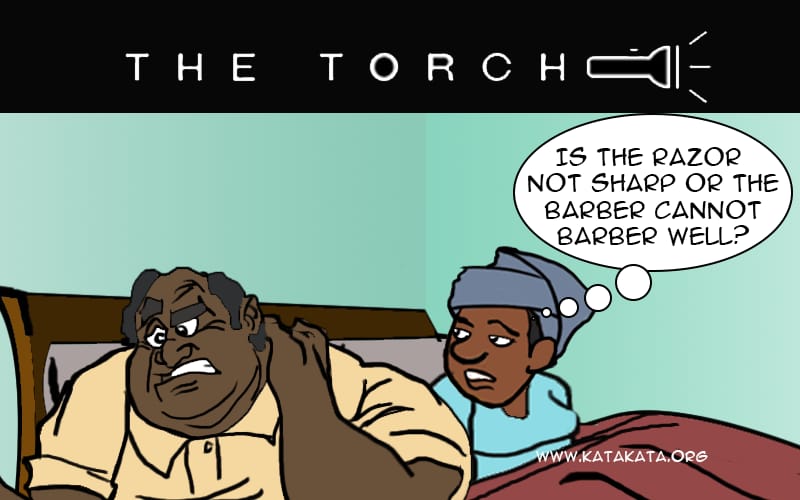Problems of Definition: The Good and Bad News.
Imagine, if you will, a world without friction — no hurdles, no heartbreaks, no unnecessary and avoidable nagging and squabbling, no late-night dilemmas pressing against the ribcage of your sleep. Such a place might, at first blush, seem like heaven on earth. Wouldn't it seem? A seamless utopia. But upon deeper reflection, one might soon discover that this flawless paradise is no more than a fool's sanctuary — an artificial earthly Eden devoid of growth, grit, and the gravity of purpose. It is in the friction, the rough edges, the unwelcome disruptions, that the human spirit sharpens its resolve and learns to dance with destiny. And dance with destiny, you must, as a human, living in this earthly Eden.
As
paradoxical as it may sound, problems are not the villains we often paint them
to be. They are, in many ways, life's secret allies — camouflaged mentors
draped in difficulty. Though we instinctively recoil from discomfort and
disruption, a reflective, right-thinking mind is bound to ask: How far could
we truly go — how much could we really become or achieve — without the
encounter of trials and tribulations? Challenges, after all, are the
crucibles in which our resilience is forged. They are the catalyst that yields
achievements and progress in life. They awaken a deeper resolve within us,
compelling us to rise above the ordinary and touch the fringes of greatness.
Yet herein
lies the beautiful complexity: the idea of a "problem" is not a
static truth. It is not a universal caste monolith which holds the same truth
for everyone, everywhere. On the contrary, problem definition is a profoundly
personal and fluid affair, shaped by the topography of our unique experiences,
perspectives, and social realities. What burdens one may barely ruffle another.
What derails one spirit might catapult another into revelation and renewal. One
man's disaster is another's deliverance. We effectively redefine our life
challenges and take complete control of our responses and destiny if we
understand that one man's disaster is another's deliverance.
And so we
must ask: What is a problem? A million-dollar question. Is it the layoff
letter tucked inside an envelope, or the unexpected opportunity to reinvent
oneself? Is it the thorn or the sour in a relationship, or the attempt to free
from such a relationship entanglement? The truth is that the nature of any
setback lies not in the event itself, but in how we choose to frame it. Our
definitions shape our responses. And our responses, in turn, shape our lives.
This is why
the line between good news and bad news is often not distinct, but a blurred
watercolour of perception. What seems like a curse may, in time, reveal itself
as an unrecognised blessing. What feels like failure may, in retrospect, be the
very spark that lit the path toward deeper purpose. There is a certain irony in
the way life deals its cards — a bitter-sweetness that reminds us that good and
bad are often two faces of the same coin, spinning in the air until we decide
how to catch it. How one catches it may well determine a lot in their life.
This realisation places the power of interpretation and response firmly in our
hands, making us feel empowered and responsible for our lives.
So rather
than asking whether problems should exist in our lives, we should question how
we define them. We must recognise that every setback is not necessarily a stop
sign — it may be a mirror, a signpost, or even a springboard. The choice is
yours. What is "bad news" is individual in the sense that it
may mean a different thing to individuals based on their mindset and worldview.
Hence, "bad news" may be seen as a lamentation, but it could also be
an awakening cloaked in discomfort for others. And conversely, "good
news" can occasionally lull us into complacency, causing us to overlook
the deeper callings we are meant to pursue.
Ultimately,
lack of problems hardly measures growth, but the presence of perspective does.
When we understand that challenges are not dead ends but detours on the path
toward becoming, we begin to live more courageously. We redefine what it means
to fail, to struggle, to be delayed — not as losses, but as lessons. And in
doing so, we reclaim our agency as interpreters and captains of our own lives.
How we interpret and respond to the problems we face depends entirely on
individuals, and our choices shape our narratives and determine our destinies.
So yes, one
person's bad news may indeed be another's good news. Ironic? Absolutely. Just
like life — beautifully ironic, perpetually evolving, and never quite what we
expected, but always rich with meaning if we dare to look beneath the surface.
Watch the video below: https://youtu.be/-UATfy8qzfM

